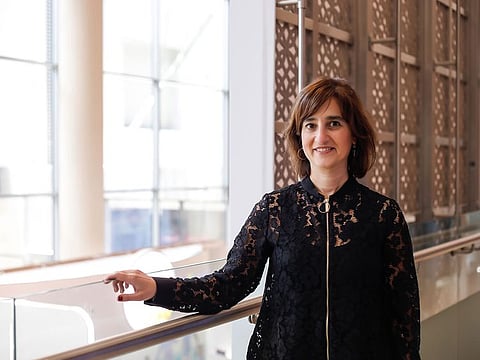A networked command centre approach to healthcare
Ozlem Fidanci, CEO of Philips Mid East & Turkey, talks of its innovations at Arab Health

The Fourth Industrial Revolution technologies are transforming healthcare. How quick has Philips been in adopting these technologies and bringing innovations to market?
With the rise of the Fourth Industrial Revolution, we started to see many innovative trends and some of them are being already applied in many sectors including healthcare. Philips provides innovations that support the delivery of seamless healthcare in the hospital and at home and we focus on combining smart, AI-powered connected health technologies with a deep understanding of healthcare providers’ needs. To that extent, we provide solutions that improve outcomes, enhance the patient experience, increase staff satisfaction and lower the cost of care delivery.
At Philips, we believe that artificial intelligence (AI) is a huge opportunity for healthcare to help overcome system challenges. As AI is integrated more seamlessly across clinical workflows and applications, it will help make healthcare more predictive, more precise and more accessible for more people and at the same time improve patient and staff experience.
Moreover, we believe in intelligent technology that adapts to individuals and seamlessly integrates into their daily lives. Using our deep expertise in IoT, sensory technology, cloud solutions and artificial intelligence, we are introducing next-generation digital health solutions that bring together consumer and professional health, empowering people to take charge of their own health.
We are committed to deliver innovations that break down boundaries and eliminate complexity in healthcare across the full continuum from hospital to home in the region. You can already see many of them in the region. Philips’ AI-driven and connected technology solutions can help seamlessly organise care by connecting people, technology and data to enable precision diagnosis, enhance productivity and eliminate waste.
What are Philips’ focus areas in health tech?
We aim to improve the lives of three billion people a year by 2030. Healthcare systems around the world are under immense pressure to deliver high-quality and efficient care to growing populations, but the financial and human resources to deliver that care are becoming increasingly stretched. At the same time, ageing populations and the rise of chronic conditions such as heart disease and respiratory ailments are driving up the demand for healthcare.
These global trends are driving a shift to value-based healthcare, a system that focuses on what patients value and allocates resources according to the health outcomes delivered by the system. The objective is to address the quadruple aim: better health outcomes, an improved patient and staff experience, and lower cost of care.
Please tell us about the latest innovations Philips is showcasing at Arab Health.
At Arab Health, we’re highlighting how we partner with healthcare providers across the region to provide flexible and scalable AI-powered solutions as they seek to step up their performance by simultaneously improving the patient experience, health outcomes and staff experience, while lowering the cost of care.
Philips is uniquely positioned to integrate and analyse clinical and operational data both inside and outside the hospital, applying AI and generating real-time, actionable analytics and proactive recommendations. Many of our innovations include AI, which has great potential to improve patient outcomes and the efficiency of care delivery.
At Philips, we believe the true value of AI can only be unlocked by combining it with knowledge of the clinical and operational context in a people-centred approach.
A command centre approach is emerging as an innovative way of transforming healthcare by generating real-time, actionable analytics and proactive recommendations to manage operational performance and guide each patient’s progression based on their clinical condition. At Arab Health, we are highlighting the growing role of a networked command centre approach to healthcare delivery in the region.
Another project that we are spotlighting is the TAJI project, a virtual cardiology network that provides a complete overview of Saudi Arabia MOH’s cardiac patients across the kingdom, integrating previously disparate systems to reduce data entry, simplify access to test results generated in other departments, and make it easier to acquire, analyse and share patient data.
In addition, Philips recently partnered with Mouwasat Hospital Group KSA to implement its first eICU platform in the region. The solution will be deployed across critical care networks and aims to provide advanced care for patients, independent of their hospital location.


